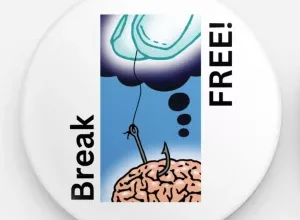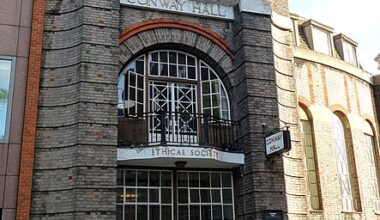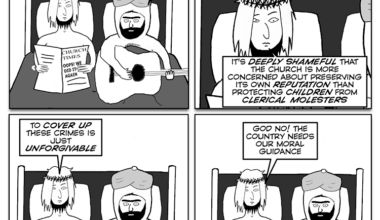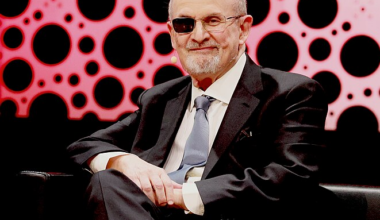Stephen Evans highlights the myriad threats to secular liberalism and sets out what’s needed to preserve it ahead of the National Secular Society’s upcoming conference on protecting liberal values, at which, among many others, Freethinker editor Daniel James Sharp and his predecessor Emma Park will be speaking. You can find out more about the conference and get tickets here.
This article was originally published on the NSS’s website on 23 July 2024.
It’s easy to see how the idea of being saved by an act of ‘divine intervention’ might well appeal to a narcissist like Donald Trump. But his claim that he had ‘God on his side’ during the recent failed assassination attempt is more likely to be the sentiment of a grifter exploiting religion for political gain.
But sincere belief in the supernatural isn’t necessary for Trump and his cronies to dismantle America’s wall of separation between church and state. His nomination of conservative justices to the Supreme Court during his previous term of office paved the way for the overturning of Roe v Wade—a significant win for evangelicals. With a return to the White House looking distinctly possible, more laws to enforce the doctrines of his Christian support base could be on the cards.
The rise of Christian nationalism in the US is another indicator of a backsliding of secular liberal democratic values, the foundation upon which many successful modern societies are built.
Right across the world, wherever religion and political power are entwined, the chips are down for liberalism. Whether it’s Protestant evangelicalism in the US, Hindu nationalism in India, or Islamism in the Middle East, the closer clerics are to governance, the lower the likelihood that individual rights and freedoms can flourish.
Europe, too, is facing testing times.
American Christian Right organisations are pouring millions of dollars into the continent to fuel campaigns aimed at diminishing the rights of women and sexual minorities. Christian identity politics has become intertwined with nationalist ideologies, shaping the political landscape and contributing to the growth of far-right movements across the continent.
Meanwhile, mass migration and a failure to integrate sizeable Muslim populations have contributed to the undermining and challenging of fundamental liberal values like free speech, equality, and state neutrality.
One of secularism’s most important roles in protecting liberal values is in preserving freedom of expression—making sure that individuals are free to voice their ideas, beliefs, criticisms, and scorn of religious ideas without the threat of censorship or punishment.
Here in the UK, an incident at a Batley school starkly illustrated the erosion of this freedom. A teacher who used a cartoon of Muhammad to teach pupils about debates on free expression faced immediate and credible death threats and now must live under a new identity.
The writing has been on the wall ever since the Rushdie affair. But a spate of violent protests and murders across Europe since has sent the clear message to European citizens that, even if blasphemy laws have been abolished (and not all have been), they remain in place for Islam, and will be enforced by intimidation and violence.
Meanwhile, growing numbers of women and young girls on the continent are compelled to obey sexist religious modesty codes and thousands of children from minority backgrounds are attending illegal schools run by religious extremists.
Meaningful debates on these matters have become increasingly challenging due to the pervasive influence of ‘Islamophobia’, a term once noted by Christopher Hitchens as strategically employed to insinuate a ‘foul prejudice lurks behind any misgivings about Islam’s infallible message’. The language of Islamophobia has fostered a fear of being labelled ‘racist’ or bigoted, causing many liberals to refrain from criticising any manifestation of Islam, however worthy of disdain. This has created a void that is exploited by extremists on the far right.
Meanwhile, a crisis in confidence that secular liberalism can counter the ascendancy of radical Islam and ‘wokery’ has led some public intellectuals to be lured by the notion that Christianity is somehow indispensable in safeguarding the Western way of life. Daniel James Sharp and Matt Johnson have presented compelling critiques of this ‘New Theism’ and its defence of Christian privilege. But entrusting the preservation of liberal democracy to a belief one considers untrue yet expedient seems precarious at best.
All this is to say that the current climate for liberal values and human rights is challenging.
Amidst the ongoing threat posed by religious fundamentalism, a renewed embrace of the Enlightenment concept of separation of religion and state is sorely needed to safeguard individual rights and freedoms.
These are the issues we’ll be addressing at Secularism 2024, the National Secular Society’s upcoming conference on October 19th. A diverse range of expert speakers will shed light on some of the contemporary challenges faced by liberal societies and explore the role of secularism in protecting liberal values and social cohesion.
To be part of this important conversation about democracy, freedom of speech, individual rights, and the rule of law, join us at Secularism 2024. Tickets are on sale now.
Related reading
What secularists want from the next UK Government, by Stephen Evans
Secularism and the struggle for free speech, by Stephen Evans
Donald Trump, political violence, and the future of America, by Daniel James Sharp
A reading list against the ‘New Theism’ (and an offer to debate), by Daniel James Sharp
White Christian Nationalism is rising in America. Separation of church and state is the antidote. By Rachel Laser
Reproductive freedom is religious freedom, by Andrew Seidel and Rachel Laser
The rise and fall of god(s) in Indian politics: Modi’s setback, Indic philosophy, and the freethought paradox, by Kunwar Khuldune Shahid
Campaign ‘to unite India and save its secular soul’, by Puja Bhattacharjee
The resurgence of enlightenment in southern India: interview with Bhavan Rajagopalan, by Emma Park
Three years on, the lessons of Batley are yet to be learned, by Jack Rivington
Keir Starmer must bring the UK’s diverse but divided people together, by Megan Manson
Islamic identity politics is a threat to British democracy, by Khadija Khan
The hijab is the wrong symbol to represent women, by Khadija Khan
Britain’s blasphemy heritage, by David Nash
The perils of dropping a book, by Noel Yaxley
Free speech in Britain: a losing battle? by Porcus Sapiens
Cancel culture and religious intolerance: ‘Falsely Accused of Islamophobia’, by Steven Greer, by Daniel James Sharp
British Islam and the crisis of ‘wokeism’ in universities: interview with Steven Greer, by Emma Park
Rushdie’s victory, by Daniel James Sharp
The Satanic Verses; free speech in the Freethinker, by Emma Park









2 comments
The so-called “far-right” gaining ground is a reaction to immigration. Free speech in the UK no longer exists. People get arrested/jailed for jokes on social media, or making “It’s OK to be White” stickers, or complaining about rioters who happen to be non-White.
Religion has no official political power. Citizens can think as they like and say what they think. A democratic republic is the best known form of government. These are the seeds of liberalism expressed 350 years ago, in a time where none of these things existed anywhere on earth. Those seeds have produced a crop of nations where these values are strongly rooted. Comparing the world that was shocked by Spinoza’s Theological-Political Treatise in 1670 to ours reveals how far the Western world has advanced. It’s not all bad. In fact, it’s mostly good.
Your email address will not be published. Comments are subject to our Community Guidelines. Required fields are marked *
Donate